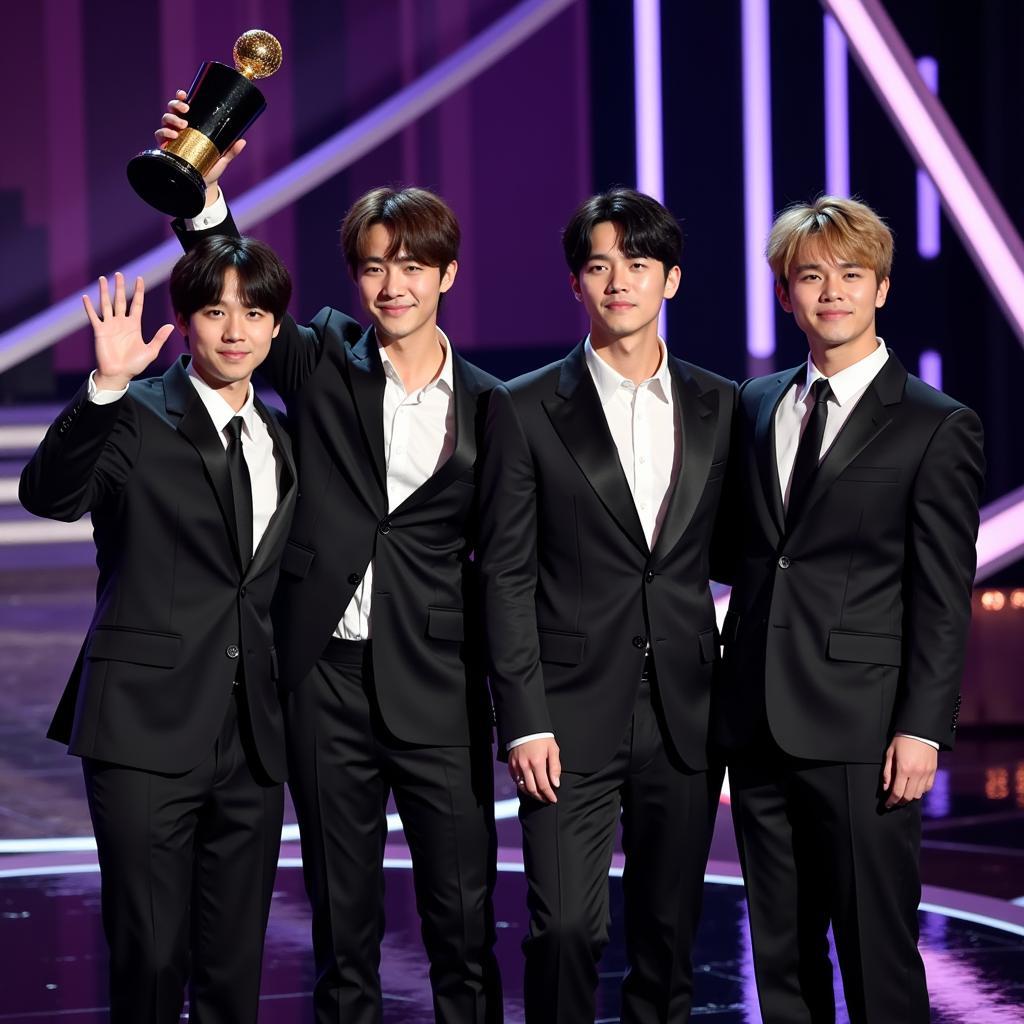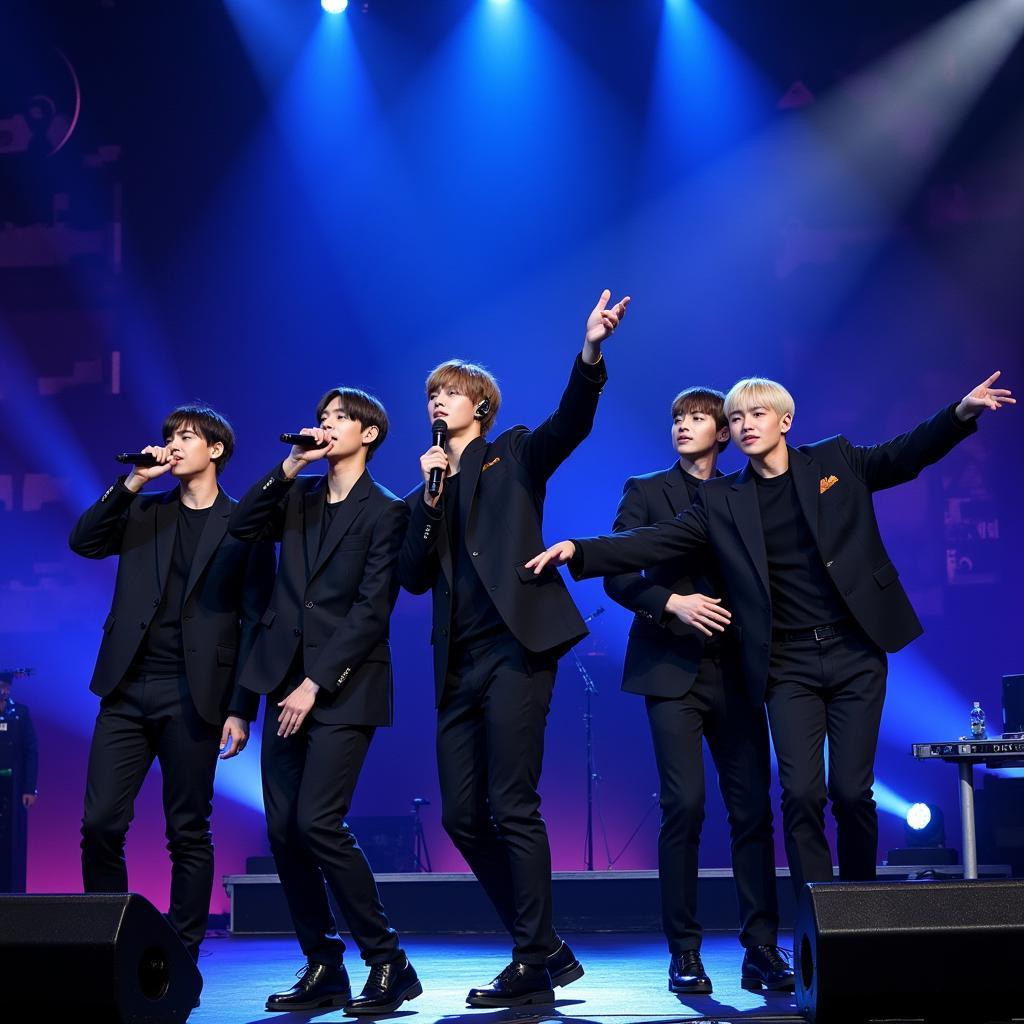The global phenomenon that is BTS has taken the world by storm, amassing a devoted fanbase known as ARMY. However, alongside their unprecedented success, a question lingers in the air: Why do people hate BTS? This isn’t about disliking their music, but a deeper examination of the hate directed towards the group and its fandom. It’s crucial to differentiate between genuine criticism and unfounded negativity while understanding the factors that contribute to this complex issue.
The Price of Popularity: Backlash is Inevitable
It’s an undeniable fact that immense popularity often attracts its opposite. BTS, being at the forefront of global music, inevitably faces backlash. Their massive success disrupts the status quo, challenging traditional notions of Western music dominance. This disruption can breed resentment, particularly among those resistant to change or threatened by the group’s impact.
 BTS winning an award
BTS winning an award
Cultural Differences and Xenophobia: A Global Phenomenon Faces Local Biases
As a South Korean group, BTS encounters xenophobia and cultural biases. The language barrier, different cultural norms, and even prejudice against Asian representation in Western media contribute to misunderstandings and negative perceptions. Some critics may dismiss their music based solely on its origin, disregarding the artistry and cultural significance it carries.
The Fandom Factor: A Double-Edged Sword
While ARMY is renowned for their passionate support, their sheer size and vocal presence can inadvertently contribute to the negativity. The dedication of some fans can be misconstrued as obsessive or intrusive, leading to generalizations about the entire fandom. Instances of online conflicts, aggressive defense mechanisms, and the spread of misinformation by a small subset of fans can overshadow the positive aspects of the fandom, creating a negative perception that impacts the group’s image.
Unrealistic Beauty Standards and Toxic Masculinity: Challenging Norms
BTS challenges traditional masculinity, particularly in the K-Pop industry known for its emphasis on idealized beauty standards. The members’ fashion choices, makeup usage, and emotional vulnerability defy conventional masculine norms, which can attract criticism from those uncomfortable with this subversion.
The Echo Chamber Effect: Amplifying Negativity
The internet and social media, while connecting fans globally, can also create echo chambers where negative opinions are amplified. Algorithms often prioritize sensationalized content, leading to a disproportionate focus on negativity surrounding the group. This creates a distorted perception where criticism, even if originating from a small minority, appears more prevalent than it actually is.
Genuine Criticism vs. Unfounded Hate: Drawing the Line
It’s essential to distinguish between legitimate criticism and baseless hate. Critique of their music, performance, or even marketing strategies, when presented constructively, is valid and contributes to a healthy discourse. However, personal attacks, derogatory language, and prejudice based on their nationality or appearance are unacceptable.
 BTS performing on stage
BTS performing on stage
Moving Forward: Focusing on the Positive
While addressing the hate is important, it’s equally crucial to celebrate BTS’s achievements and the positive impact they have on millions globally. Their music transcends language barriers, spreading messages of love, acceptance, and self-belief. Their philanthropy and advocacy for important social issues further solidify their positive influence.
Ultimately, understanding the reasons behind the hate directed at BTS requires a nuanced approach that acknowledges both societal factors and individual biases. By fostering empathy, promoting respectful dialogue, and celebrating the positive contributions of both BTS and their dedicated fanbase, we can move towards a more inclusive and appreciative environment for all.


